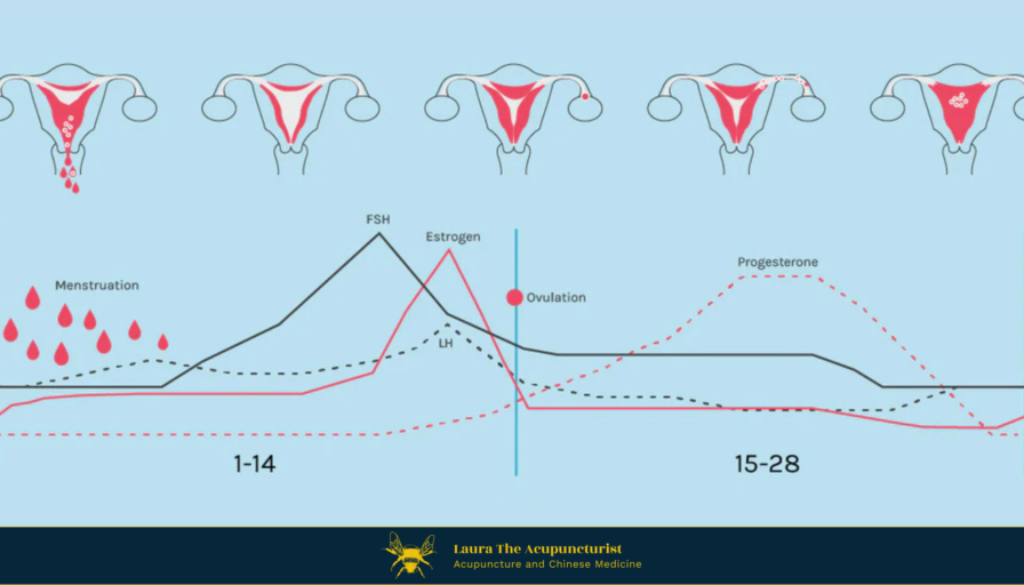Understanding Your Menstrual Cycle
Your menstrual cycle is an important indicator of your overall health and fertility. Understanding, knowing, and tracking it are fundamental steps to optimising your fertility and recognising potential issues early on.
What a Healthy Menstrual Cycle Looks Like
Every menstrual cycle is unique, just like every person. What’s normal for one individual may not be for another. However, there are general parameters that a healthy cycle should fit within to be considered optimal for fertility:
- Menstrual Cycle Length: The length of your cycle (from the first day of your period to the first day of the next) can range from 24 to 36 days. The average is 28 days, but this isn’t a one-size-fits-all number. Variations from month to month are also common.
- Follicular Phase: This phase starts on the first day of your period and lasts until ovulation. During this time, a follicle matures an egg ready for release. It typically lasts between 10 and 20 days.
- Ovulation: Ovulation occurs once the follicle is ready and the egg is mature. It can happen anywhere from day 10 to day 20—don’t assume it always occurs on day 14. There should be noticeable cervical mucus for 2 to 7 days before ovulation. This mucus is your best indicator of fertility.
- Luteal Phase: This phase runs from ovulation until your next period. If an embryo forms, implantation occurs, and hormone levels rise. If conception doesn’t happen, hormone levels fall, and your period begins. This phase should be between 12 and 16 days.
- Period: A healthy period lasts between 3 and 7 days, with minimal pain that responds well to painkillers if needed. There should be no spotting, the blood should be bright red with minimal clots, and the flow should be consistent.
What to Look Out For and Investigate Further
- Pain: Severe pain that doesn’t respond to painkillers or prevents you from going about your daily life.
- Irregularity: Cycles shorter than 23 days or longer than 36 days may indicate issues with ovulation.
- No Cervical Mucus: Or mucus that is itchy or has an unusual smell.
- Too Heavy: If you are flooding sanitary products, needing to double up, or changing every 1 to 2 hours.
- Too Light: Periods lasting less than 2 days.
Why Tracking Your Cycle is So Helpful
Keeping a record of your cycle can help you identify any problems and give you useful information for a proper assessment by your GP. You could use an app or simply jot down notes in a diary. If you have any concerns about your cycle, do seek advice either from your GP or from a fertility experienced Acupuncturist. Tracking empowers you to understand your body better and take charge of your fertility journey.




